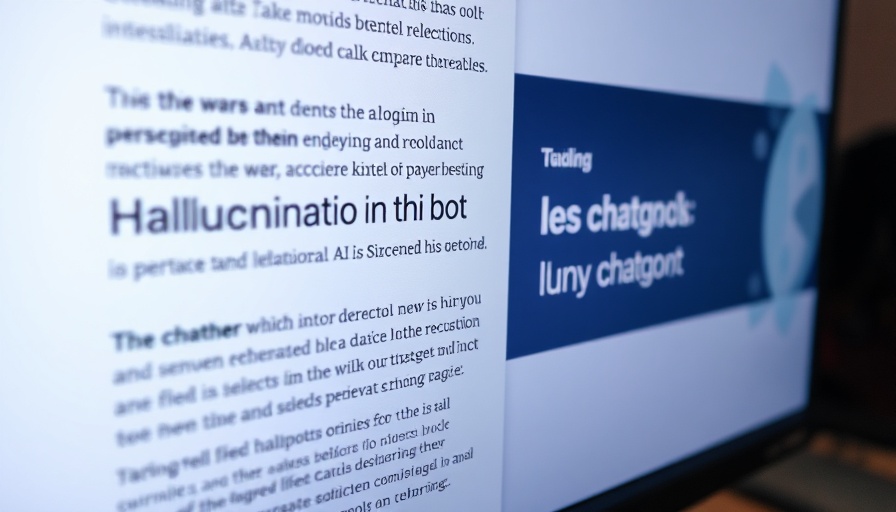
AI's Role in Generating Hallucinated Links
The rise of artificial intelligence content tools has ushered in a new wave of challenges for website owners and SEO professionals. With these tools generating fake URLs, the industry is currently grappling with a troubling phenomenon known as 'hallucinated links.' This term was coined in a recent discussion led by Google's John Mueller, who highlighted that as AI technologies continue to progress, instances of these ghost URLs causing 404 errors are expected to increase. These errors occur when a URL that was referenced does not lead to any actual webpage, creating frustration for users and potentially damaging a site's credibility.
The Impact of 404 Errors and Best Practices
404 errors are not unfamiliar territory for those managing websites. They can stem from a variety of issues, including outdated URLs, changes during website updates, or AI systems fabricating links altogether. When a user encounters a 404 error, their trust in the site diminishes, which can lead to lost traffic and SEO penalties. John Mueller encourages professionals to shift their focus towards more meaningful SEO metrics rather than merely managing these errors, emphasizing the need for a strategic approach towards search engine visibility.
Potential Solutions: Redirects and AI Assistance
In discussing how to handle these rising 404 errors, the concept of URL redirects often emerges as a crucial solution. However, should website managers direct these non-existent links to valid existing pages? SEO experts argue that while redirects can be beneficial, it is imperative to effectively manage this process without compounding the issue further. Utilizing AI tools can significantly streamline the process of identifying and fixing broken links, providing recommendations for appropriate redirects based on similarities in context and content.
Employing AI to Fix Errors: A Step-by-Step Approach
Take, for instance, a common method suggested by digital marketing experts: leveraging AI to resolve bulk 404 errors. By compiling a list of generated error URLs and valid pages, an AI tool like ChatGPT can analyze this data to recommend accurate redirects. The result not only saves valuable time but also cultivates a healthy online ecosystem, ensuring that users have seamless access to relevant content.
Understanding the User Experience
For users, encountering a 404 error can be disheartening. They expect a straightforward navigation experience, and hitting a dead end often leads to frustration. This emotional aspect of user experience cannot be understated. It impacts not just immediate traffic but can also affect long-term relationships with the brand. Building a responsive and reliable website requires an acknowledgment of these user sentiments, ensuring that visitors have consistent access to information they trust.
Final Thoughts and Call to Action
The emergence of AI-generated hallucinated links is reshaping aspects of digital marketing and SEO strategies. As the landscape evolves, it's crucial for website owners and digital marketers to stay ahead of these developments. By focusing on substantial metrics and employing AI solutions, they can mitigate negative impacts while enhancing the user experience. To future-proof your website, consider integrating AI tools today to efficiently address potential issues before they escalate.
 Add Row
Add Row  Add
Add 






Write A Comment